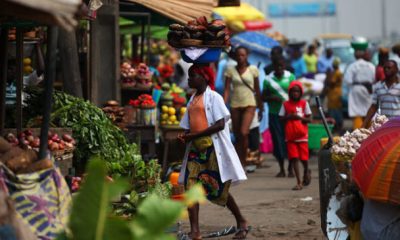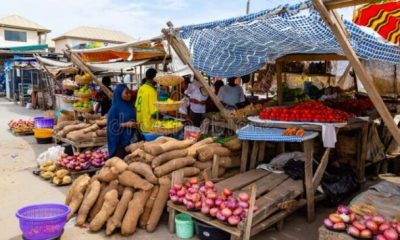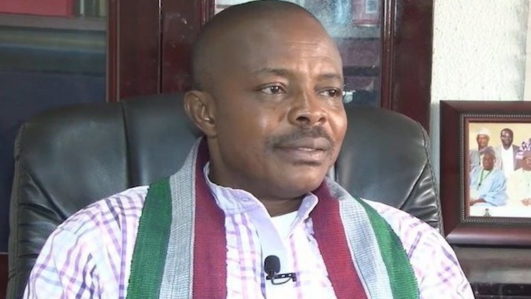With increasing prices diminishing the welfare of Nigerian households, the World Bank has said Nigeria may have one of the highest inflation rates globally in 2022.
According to the World Bank, Nigeria is projected to have one of the highest inflation rates globally and the seventh highest among Sub-Saharan African countries in 2022
“In 2022, Nigeria is expected to have one of the highest inflation rates in the world and the seventh highest in Sub-Saharan Africa,” it said.
The bank said this in the November edition of its Nigeria Development Update.
According to the global financial institution, high inflation hampers the country’s attempt to achieve economic recovery and erodes the purchasing power of most vulnerable households.
The document read in part, “High inflation is frustrating Nigeria’s economic recovery and eroding the purchasing power of the most vulnerable households. In the absence of measures to contain inflation, rising prices will continue to diminish the welfare of Nigerian households.”
The bank further highlighted the adverse effects of inflation on Nigeria, which include pushing eight million Nigerians into poverty, and the possible disruption of consumption, investment and saving decisions, among other consequences.
“If inflation had been closer to the CBN’s goal of nine per cent in 2021, the average Nigeria’s consumption would have been 15 per cent higher, and eight million Nigerians would have not fallen into poverty.
“If double-digit inflation persists during 2022-2023, rising prices will distort consumption, investment, and saving decisions of the government, households, and firms, with adverse ramifications for long-term borrowing and lending.
“Over time, the disproportionate impact of inflation on lower-income households and those working in sectors with low savings (e.g, agriculture) will exacerbate inequality. Ultimately, inflation will not only negatively affect incomes, but also economic productivity and job creation, further constraining the recovery,” the bank said.
The Washington, United States-based institution also disclosed that over two years, an increase in food prices accounted for about 70 per cent of the annual increase in the rate of inflation.
It also said that inflationary pressures were trigged by multiple demand and supply shocks.
The document read in part, “Inflationary pressures are being generated by multiple demand and supply shocks. Supply shocks arising from disruption of supply chains linked to COVID-19 and associated containment measures have eased, but security issues, border closures, and limited access to markets continue to fuel inflation.
“The current mix of monetary, fiscal, foreign exchange, and trade policies also plays a prominent role as a driver of inflation. Trade and FX restrictions, including the closure of land borders starting in August 2019, have increased prices for food and consumer goods, and imports of over 40 goods, including many staple foods, are currently ineligible for FX through formal windows.
“Nigeria’s exchange-rate management has resulted in the rise of parallel rates, which are closely linked to food-price dynamics. Unable to access FX through the official exchange-rate window, businesses seek FX on the parallel market and other alternative sources.
“The parallel rate influences their business decisions, and fluctuations in the parallel rate pass through to market prices for goods and services. Moreover, monetary policy has not prioritized controlling inflation, and the monetary financing of fiscal deficit undermines the effectiveness of policies to contain demand-side inflationary pressures.”

 News3 years ago
News3 years ago
 Entertainment2 years ago
Entertainment2 years ago
 News3 years ago
News3 years ago
 Privacy3 years ago
Privacy3 years ago
 Sports2 years ago
Sports2 years ago
 Entertainment2 years ago
Entertainment2 years ago
 News3 years ago
News3 years ago
 Opinion3 years ago
Opinion3 years ago







